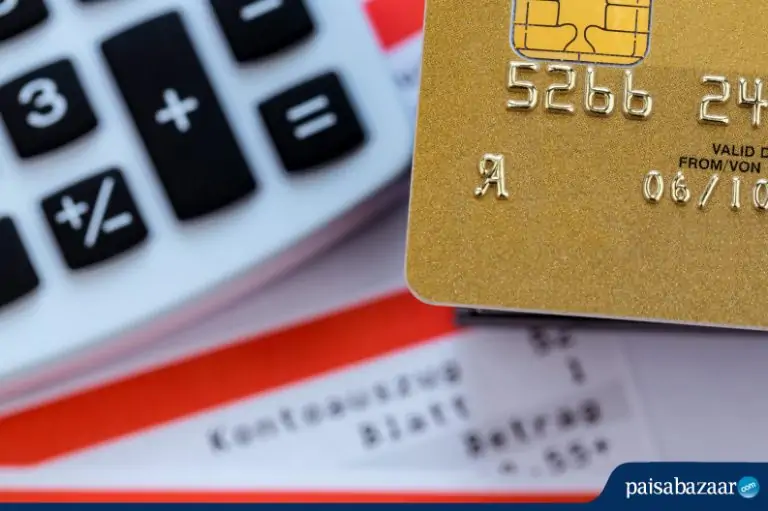Paisabazaar app Today!
Get instant access to loans, credit cards, and financial tools — all in one place
Our Advisors are available 7 days a week, 9:30 am - 6:30 pm to assist you with the best offers or help resolve any queries.
 Get the App
Get the App

Get instant access to loans, credit cards, and financial tools — all in one place

Scan to download on


Credit cards, when used wisely, can be a smart financial tool rather than just a payment method. They not only help manage monthly expenses but also offer benefits like cashback, rewards, air miles, and discounts. More importantly, consistent and disciplined usage can build a strong credit history, improving your financial profile.
However, the key is to use them responsibly. While they can help you save money and access better financial products, overspending or missed payments can lead to debt and hurt your credit score.
Here are some simple ways to make credit cards work for you:
Every card is different and serves a unique purpose —some cater to high-spenders who maximize rewards, while others are designed to help travellers save more on their trips, some are co-branded with airlines or popular platforms while others are focused around making everyday experiences more rewarding for consumers. To choose wisely, analyse your spending patterns and opt for a card that provides the highest savings in your preferred spending categories. Always check eligibility, compare fees, rewards, and other terms and conditions before making a decision.
The primary benefit of credit cards is to make your everyday expenses yield returns in the form of reward points, air miles, cashback or discount. So, once you have the right cards in your wallet, the key is to use each one strategically. Understand reward programs on each card and track which purchases earn the best value on each card, while keeping an eye on exclusions and other terms and conditions.
Secondly, while optimizing reward earning is essential, you should also redeem the accumulated points optimally. Most credit cards allow redemption across multiple categories like air miles, vouchers, merchandise or statement credit. Some cards may offer better redemption value on select categories. Hence, it is important to understand the best redemption options for your card and redeem your points wisely.
Most credit cards offer valuable perks beyond cashback and reward points, such as complimentary airport lounge access, travel vouchers, dining and movie discounts, fuel surcharge waiver, concierge services, travel insurance, etc. Premium cards take it a step further offering exclusive benefits like membership to luxury hotel loyalty programs, airport meet and greet, personalized assistance, and more. By understanding and maximizing these benefits, you can enhance your experiences while deriving greater value from your credit card.
One of the most underrated advantages of credit cards is the interest-free period. Strategic use of the interest-free period can smooth out your monthly finances by working in tandem with your cash inflow and outflow. By timing bigger purchases at the beginning of a statement cycle, you can have the complete window of 40-50 days for repayment without incurring interest. Since different cards have different billing cycle, you must find a way to manage your interest-free period strategically to your advantage.
While credit cards help you save a significant amount through rewards and other benefits, reckless spending can lead to mounting debt that can easily spiral out of control.
To avoid falling into a debt cycle, you must always pay the total amount due on or before the due date. While issuers provide you the option to pay the minimum due and revolve the remaining amount to the next cycle, this comes with substantial charges. When you pay only the minimum amount due, the remaining balance as well as new transactions start attracting finance charges, which can go as high as 50% p.a., depending on the card variant. Similarly, cash withdrawals from credit cards attract finance charges from the first day and new transactions become ineligible until the withdrawn amount is paid in full. Hence, it is always advised to clear your dues in time and avoid cash withdrawals.
Credit cards play a crucial role in building a strong credit profile, but it requires consistent responsible usage over time. Since payment history has the highest weightage in credit scoring, making timely payments is the most crucial factor. Each delay is recorded in the ‘Days Past Due’ section of your credit report and negatively impacts your score. Hence, you must clear your dues on or before the due date.
Another key factor is your Credit Utilization Ratio (CUR), which reflects the percentage of your total credit limit that you have used. A consistently high CUR may signal credit-hungry behaviour, and could hurt your credit score. To avoid this, you should plan your spending smartly across all cards and avoid maxing out your cards to keep your CUR balanced.
Moreover, you should limit multiple credit card applications within a short period as each new application initiates a hard enquiry, temporarily reducing your score.
As your financial situation evolves, so should your credit card strategy. Every few years, you should reassess your credit cards to ensure they align with your current needs. For instance, if you have outgrown a basic card, you should consider moving on to mid-range options with category-focused benefits. Similarly, if your expenses have increased significantly, it may be time to explore premium cards offering higher value-back and exclusive benefits.
Overall, credit cards can be a valuable financial tool but they require responsible use and strategic spending. By selecting the right card, optimizing rewards, avoiding debt, and protecting your credit score, you can make the most of your credit cards while safeguarding your financial health.
Note: An edited version of this article was published in Financial Express on 19th April 2025.